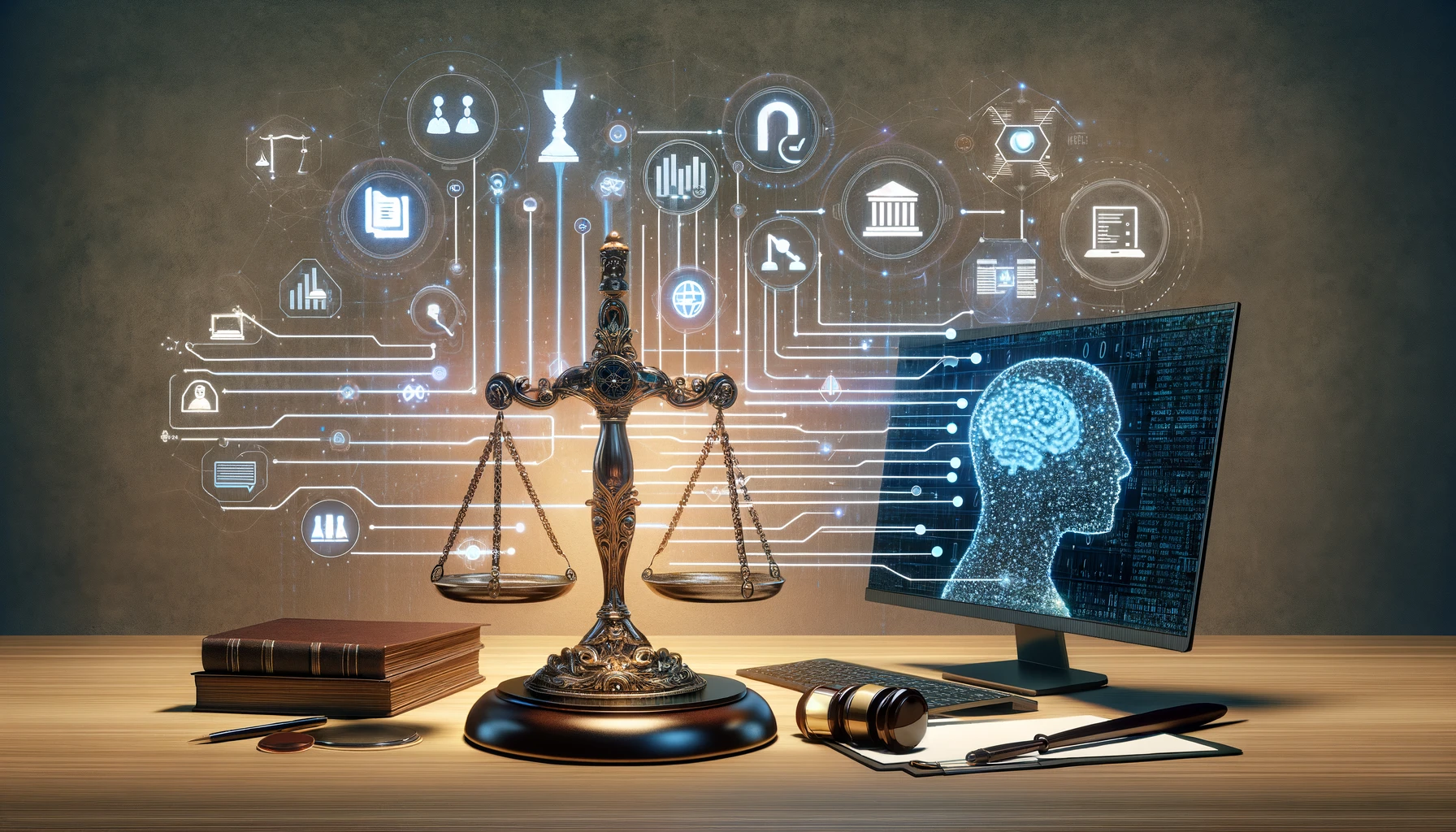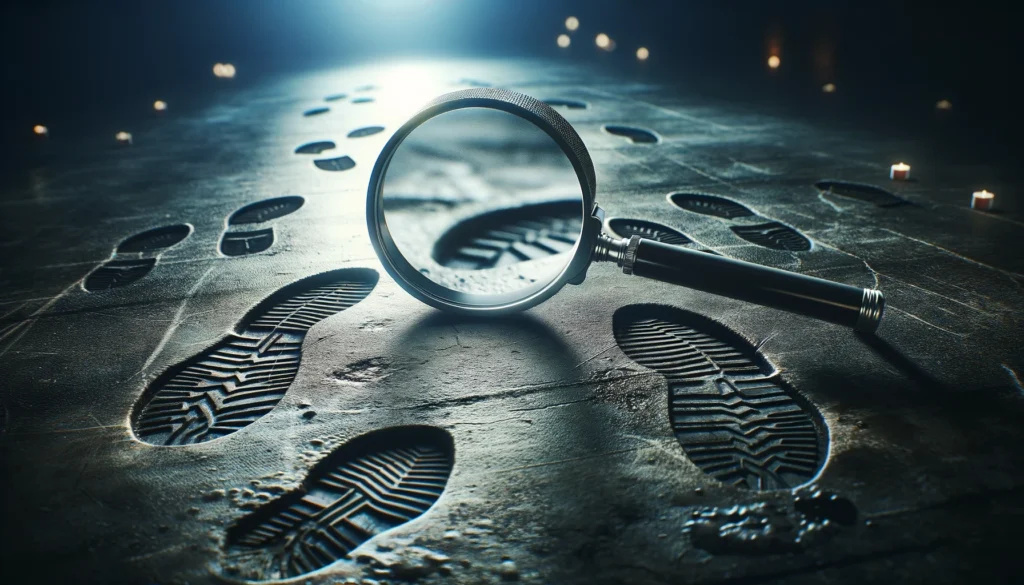
The Art of Cross-Examination: Where Preparation Meets Performance
Cross-examination is a pivotal moment in any trial. It’s the opportunity to challenge witnesses, expose inconsistencies in their testimony, and ultimately sway the jury towards your client’s narrative. It’s a verbal chess match where every question, every inflection, every subtle pause can influence the outcome of the case.
But mastering this art requires more than just quick thinking and a silver tongue. Effective cross-examination is built on a foundation of meticulous preparation. Attorneys must analyze mountains of evidence, anticipate witness responses, and craft precise questions that will elicit the desired information while maintaining control of the narrative.
This is where ChatGPT steps in as a secret weapon for legal professionals. It’s not just a language model; it’s a tireless research assistant, a brainstorming partner, and a virtual mock witness all rolled into one. By leveraging its powerful capabilities, attorneys can sharpen their cross-examination skills, uncover hidden truths, and ultimately advocate more effectively for their clients.
Let’s explore how ChatGPT can become your virtual sparring partner, helping you prepare for every twist and turn of cross-examination.
ChatGPT: Your Cross-Examination Sparring Partner
Imagine having a tireless legal mind at your disposal, capable of dissecting witness statements, uncovering inconsistencies, and even simulating witness responses to hypothetical questions. That’s the potential of ChatGPT in your cross-examination toolkit.
Think of it as your sparring partner, helping you prepare for every possible scenario in the courtroom. Here’s how ChatGPT can elevate your cross-examination game:
- Analyzing Deposition Transcripts: Feed ChatGPT deposition transcripts or witness statements, and it can quickly identify inconsistencies, contradictions, and potential weaknesses in their testimony. This can reveal fertile ground for cross-examination.
- Identifying Key Lines of Inquiry: ChatGPT can analyze the evidence and suggest areas where further questioning could be fruitful. It can help you develop a structured approach to cross-examination, ensuring you cover all relevant topics and maximize the impact of your questions.
- Generating Hypothetical Questions and Responses: Practice your cross-examination by asking ChatGPT to simulate witness responses to your questions. It can generate a range of potential answers, helping you anticipate challenges and prepare effective follow-up questions.
- Researching Legal Precedents: Uncertain about the admissibility of certain evidence or the scope of questioning allowed? ChatGPT can research relevant case law and rules of evidence, providing guidance on the boundaries of permissible cross-examination.
Important Note:While ChatGPT is a powerful tool, it's not a substitute for legal expertise or courtroom experience. Always exercise your own judgment and ethical considerations when crafting cross-examination questions and strategies.
Now that we’ve established ChatGPT’s potential as a cross-examination assistant, let’s dive into the art of prompt engineering to unlock its full power in your litigation strategy.
Also read:
Prompting for Cross-Examination Success
Crafting the right questions for cross-examination is a delicate dance – one that requires both precision and flexibility. ChatGPT can be your choreographer, helping you design a series of questions that will expose weaknesses in the opposing witness’s testimony while staying within the bounds of legal and ethical constraints.
Here are some prompt strategies, along with examples, that can transform your cross-examination preparation:
Inconsistency Identification:
- Prompt: “Analyze this witness’s deposition testimony [insert or summarize testimony]. Identify any statements that contradict their prior testimony, sworn affidavits, or any known facts of the case. Highlight any inconsistencies in their account of events, timelines, or descriptions.”
- Purpose: This prompt empowers ChatGPT to sift through the witness’s statements, flagging discrepancies that can be leveraged during cross-examination to undermine their credibility.
Impeachment Question Generation:
- Prompt: “Based on this inconsistency in the witness’s testimony [describe the inconsistency], generate three leading questions that could be used to highlight the contradiction and cast doubt on the witness’s overall reliability.”
- Purpose: This prompt turns ChatGPT into your question-crafting assistant, helping you formulate pointed inquiries that expose the witness’s inconsistencies and weaken their testimony.
Hypothetical Scenario:
- Prompt: “Imagine you are the opposing counsel. I am planning to ask the witness the following questions during cross-examination: [insert your planned questions]. How would you advise your client to respond? Generate three plausible responses the witness might give, taking into account their potential motivations and biases.”
- Purpose: This role-playing exercise helps you anticipate the witness’s responses, prepare for potential challenges, and refine your line of questioning accordingly.
Legal Foundation:
- Prompt: “Research case law in [jurisdiction] on the admissibility of [specific type of evidence, e.g., character evidence, hearsay]. Summarize the rules and identify any potential objections the opposing counsel might raise during cross-examination.”
- Purpose: Ensures your questions are legally sound and helps you prepare for potential challenges from the opposing side.
Theme Development:
- Prompt: “Based on the overall theory of our case and the evidence available, suggest three key themes or points of attack that we can focus on during cross-examination of this witness. These themes should aim to undermine the witness’s credibility, challenge their version of events, or highlight inconsistencies in their testimony.”
- Purpose: This helps you structure your cross-examination around a cohesive narrative, making it more impactful and memorable for the jury.
Remember:ChatGPT is a powerful tool, but it's your legal expertise and courtroom experience that will ultimately make the difference. Use ChatGPT's insights as a springboard for your own creative and strategic thinking.
Crafting effective questions is just one piece of the puzzle. Delivering those questions with confidence, adaptability, and a touch of theatricality is what makes a cross-examination truly compelling.
Also read:
The Human Element: Adapting and Thinking on Your Feet
While thorough preparation is key, even the most meticulously crafted cross-examination questions can be derailed by an unexpected answer or a change in the witness’s demeanor. The ability to adapt on the fly, think strategically under pressure, and connect with the jury on a human level is what separates a good cross-examination from a truly masterful one.
ChatGPT, surprisingly, can help you hone these skills:
- The Mock Witness: Use ChatGPT to simulate a live cross-examination. Input your planned questions and have the AI generate different types of responses: evasive, combative, tearful, or overly confident. Practice adapting your line of questioning in response to these varied reactions.
- The Devil’s Advocate: Ask ChatGPT to play the role of the opposing counsel and challenge your questions. This helps you anticipate objections, refine your phrasing, and strengthen your legal arguments.
- The Emotional Barometer: Describe the witness’s demeanor (nervous, arrogant, etc.) and ask ChatGPT for suggestions on how to adjust your approach based on their emotional state. This can help you tailor your questions and tone to maximize impact.
The Importance of Improvisation:Remember, cross-examination is a dynamic process. It's a conversation, not a script. ChatGPT can help you prepare for a wide range of scenarios, but ultimately, it's your ability to listen, react, and improvise that will make your cross-examination truly effective.
The Power of Human Connection:While ChatGPT can simulate witness responses and offer strategic advice, it cannot replicate the human connection that is so crucial in a courtroom setting. Your ability to connect with the jury, demonstrate empathy for your client, and convey genuine conviction in your arguments is what will ultimately persuade them.
While the potential of ChatGPT in cross-examination preparation is exciting, it’s important to be mindful of ethical considerations and the need for human judgment.
Also read:
Ethical Considerations and the Pursuit of Truth
While ChatGPT can be a valuable asset in sharpening your cross-examination strategies, it’s important to wield this tool responsibly and ethically. As officers of the court, lawyers have a duty to uphold the integrity of the legal process and ensure a fair trial for all parties involved.
Ethical Boundaries:
- No Misleading Questions: ChatGPT can help you formulate tough questions, but it should never be used to create misleading or deceptive questions that misrepresent the facts or manipulate the witness. Always adhere to the rules of evidence and professional conduct.
- Truth-Seeking, Not Trickery: The goal of cross-examination is to elicit the truth, not to trap or humiliate the witness. Use ChatGPT to identify inconsistencies and weaknesses, but avoid tactics that could undermine the fairness of the process.
The Attorney’s Role:
- Human Judgment is Essential: While ChatGPT can offer insights and suggestions, the ultimate responsibility for ethical decision-making rests with the attorney. Never blindly rely on AI-generated questions without carefully considering their implications and potential impact on the witness and the jury.
- Transparency: Be transparent with the court and opposing counsel about your use of AI tools. Explain how ChatGPT was utilized in your preparation, but clarify that it is a tool, not a substitute for your own legal knowledge and judgment.
The Pursuit of Justice:
By using ChatGPT ethically and responsibly, attorneys can enhance their cross-examination skills, uncover hidden truths, and ultimately advocate more effectively for their clients. Remember, the goal is not simply to win, but to uphold the principles of justice and fairness in the pursuit of truth.


